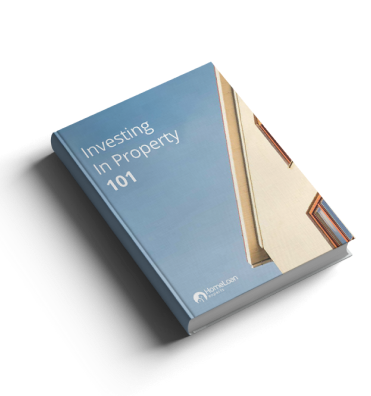Investment property ownership offers various financial benefits, and one of the most significant is tax deductions. As a property investor in Australia, understanding which expenses are tax-deductible can greatly enhance your returns and help you optimise your financial strategy. By identifying eligible deductions and categorising them correctly, you can minimise your taxable income and maximise the benefits of property investment.
This guide provides a comprehensive overview of tax-deductible expenses, ranging from annual claims like repairs and council rates to long-term deductions for capital works and asset depreciation. Additionally, it highlights what expenses are excluded and offers practical tips to ensure you claim every eligible deduction, enabling you to maximise your tax return and property income.
What Tax Deductions Can You Claim On An Investment Property?
The investment property tax deductions you can claim can be divided into two broad categories:
| Tax Deductions You Can Claim In The Same Year You Paid Them | Tax Deductions You Can Claim Over Time |
|---|---|
| Advertising fees Repairs and maintenance Interest on loans Legal expenses Council rates Gas, water and electricity Negative gearing | Loan set-up fees Renovation or improvement Broker fees Valuation fees Depreciation of capital assets |
Investment Property Tax Deductions You Can Claim Each Year
When you rent out your property, you are liable for expenses related to it. These expenses can be claimed as tax deductions the year you incur them.
- Advertising costs: These include the cost of buying online and offline advertising to find the right tenant.
- Loan interest: You are entitled to claim tax deductions for any interest charged on your investment loan. You cannot claim deductions on principal loan repayments. This is why property investors favour interest-only loans, as they can deduct full repayments during the interest-only periods.
- Council rates: During periods when the investment property was rented or available for rent, council rates can be deducted in the year they were paid. You cannot claim rates if your tenant is paying for them.
- Utilities: If you paid for water, electricity or gas, you can claim a deduction.
- Rental agent fees: If you used the services of an agent to find a tenant, you can claim these expenses during the year you paid them.
- Legal expenses: If you sought legal assistance to prepare rental documents or legal counsel to evict a tenant, the cost can be deducted.
- Insurance: landlord insurance is a tax-deductible expense; it covers tenant-related risks like the loss of rental income and damage by tenants to your property and its contents.
- Pest control: If you hired a pest controller, the cost is tax-deductible.
- Land tax: As long as your investment property is rented out, land tax can be claimed as a tax deduction.
- Tax adviser services: If you used a tax adviser, you can claim the fees as a deduction.
- Repairs and maintenance: You can claim deductions for wear and tear and for any damages that happened when the property was rented out. This does not include improvements made to the property like landscaping.
- Negative gearing: A rental property is negatively geared when the expenses are more than the income you earn from it, resulting in a net rental loss. You can deduct the full amount of the loss from your taxable income.
Property Investment Guide 101
Learn the ins & outs of investing in properties from an experienced property investor and founder of Home Loan Experts, Otto Dargan.

Investment Property Tax Deductions You Claim Over Time
The investment property tax deductions you can claim over multiple years are divided into three categories:
- 1. Borrowing expenses
- 2. Depreciation of assets
- 3. Capital works
- Borrowing expenses include fees incurred when you take out an investment loan, like establishment fees, mortgage broker fees, title search fees, etc. If the borrowing expenses are less than $100, you can claim deductions in the income year they occurred.
- You can also claim tax deductions for asset depreciation. The write-off of the asset is done over several years. The types of assets you can write off include tools and machines, kitchen appliances air-conditioning units and more. You can only claim depreciation for the asset if it was used to earn income.
- You can claim capital works deductions on the cost of any construction for an investment property, any improvements done on the property, including additions of retaining walls and embankments for environmental protection. Other examples of capital works expenses that can be deducted include adding a room, removing an internal wall and any structural improvements.
Investment Property Tax Deductions You Cannot Claim
As property investors, it is important to know what fees and costs cannot be claimed as tax deductions, too:/
- You cannot claim expenses that your tenants paid (water rates, gas and electricity bills, etc).
- You cannot claim expenses that you can’t prove with a bank statement, invoice or receipt.
- You cannot claim deductions if the property was not rented out or genuinely available for rent.
- You cannot claim repayments on the principal amount you borrowed to buy an investment property.
- You cannot claim solicitor or conveyancer fees related to the purchase and sale of a property.
How Do I Maximise My Tax Return With An Investment Property?
- Remember to claim deductions for depreciation. As it is a non-cash deduction, many property investors miss out on this one.
- As the ATO considers rental income taxable income, make sure you claim the expenses of owning the home, to reduce the taxable amount.
- Know the difference between repairs and improvements, as they are taxed differently. Repairs and maintenance can be claimed in the year they were done; with improvements and renovations, you can claim deductions as they depreciate over time.
- Get the help and advice of a Quantity Surveyor to make sure depreciation is calculated properly.
- You can amend your previous years’ tax returns if you’’ve missed any deductions.
There are many advantages of owning an investment property, and tax benefits are just one of them. If you are interested in buying your first investment property or building a portfolio, get an expert mortgage broker onto your team.
At Home Loan Experts, our mortgage brokers are also seasoned investors, so we understand your needs. From getting you approved for finance to maximising your profits, we’re here to help. Call us on 1300 889 743 or fill in our free assessment form today.
Frequently Asked Questions
Can I Claim Deductions For The Cost Of Holding Land?
No, you cannot claim deductions for the cost of holding vacant land as a property investor. The ATO states that the land is considered vacant when:
- There is no substantial permanent structure
- There are ongoing renovations on a substantial structure, during which it cannot be rented or occupied.
There are some exceptions to this. Visit the ATO’s website for more information.
How Do I Claim Deductions On Investment Property?
Is The Interest On A Home Equity Loan Tax Deductible For Rental Property?
Is Investment Property Tax Deductible?
Is Stamp Duty A Tax Deduction On An Investment Property?
How Do I Avoid Paying CGT On Rental Property?
How Does Negative Gearing Work?
Still need answers? We're here to help!
Ask an expertOur team of mortgage experts will assist you within 24 hours.
